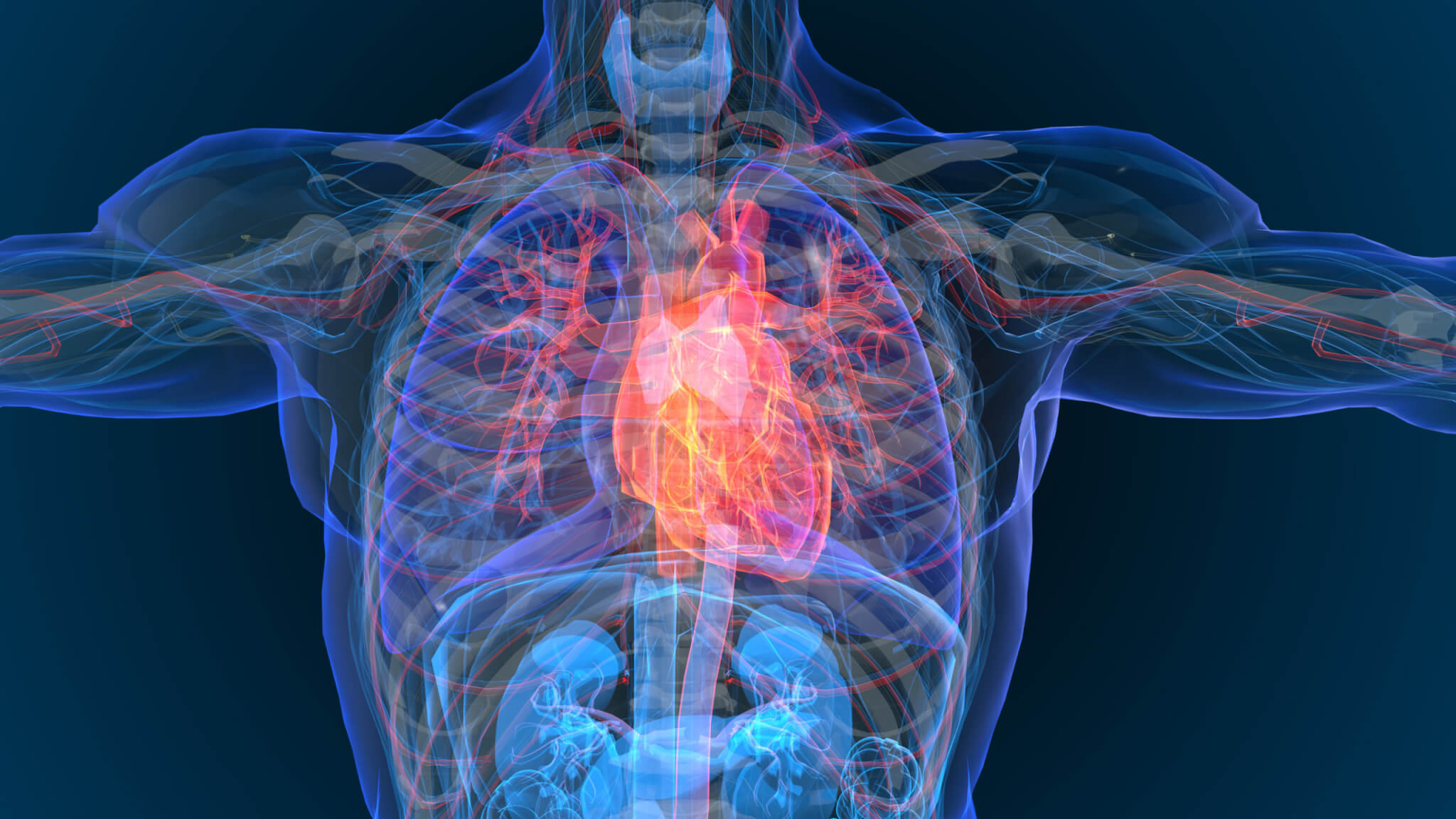PITTSBURGH — High-protein diets are viewed as essential for athletes, bodybuilders, or individuals just trying to improve muscle mass and strength. A new study, however, is making us rethink the health benefits of eating too much protein. University of Pittsburgh School of Medicine scientists reveal that excess protein in the diet is bad for the heart.
The findings provide compelling evidence that these particular diets, including those exceeding 22 percent of daily caloric intake from protein, can escalate the risk of atherosclerosis, a condition characterized by the hardening and narrowing of arteries due to plaque buildup.
Researchers embarked on a comprehensive investigation combining human trials with animal and cellular studies. The study reveals a complex molecular mechanism whereby high protein consumption leads to increased activation of immune cells implicated in the formation of atherosclerotic plaque, thereby elevating the risk of heart disease.

“Our study shows that dialing up your protein intake in pursuit of better metabolic health is not a panacea. You could be doing real damage to your arteries,” says senior and co-corresponding study author Dr. Babak Razani, professor of cardiology at the University of Pittsburgh, in a university release. “Our hope is that this research starts a conversation about ways of modifying diets in a precise manner that can influence body function at a molecular level and dampen disease risks.”
A critical aspect of this study is the identification of leucine, an amino acid predominantly found in animal-based foods such as beef, eggs, and milk, as a key player in promoting the pathways associated with atherosclerosis. This discovery sheds light on the specific components of protein-rich diets that may contribute to cardiovascular risk, opening avenues for more targeted nutritional strategies or “precision nutrition” to mitigate disease risk.
The context for this research is the growing popularity of high-protein diets, driven by widespread beliefs in their health benefits, including muscle maintenance and weight loss. However, this study challenges the notion that more protein is invariably better, suggesting that over-reliance on protein, especially from animal sources, may have unintended health consequences.

For the study, researchers conducted a series of experiments to explore how amino acids from protein influence disease processes at the molecular level. Particularly, they focused on macrophages, immune cells in the blood vessels that play a crucial role in the development of atherosclerosis. The research demonstrated that high dietary protein intake could disrupt the normal function of these cells, leading to the accumulation of cellular debris within the arterial walls and exacerbating plaque formation.
“We have shown in our mechanistic studies that amino acids, which are really the building blocks of the protein, can trigger disease through specific signaling mechanisms and then also alter the metabolism of these cells,” notes Dr. Bettina Mittendorfer, a metabolism expert at the University of Missouri. “For instance, small immune cells in the vasculature called macrophages can trigger the development of atherosclerosis.”
This study not only contributes to our understanding of the dietary factors influencing cardiovascular health but also raises important questions about the optimal protein intake for maintaining heart health without triggering adverse effects. Researchers highlight a critical gap in knowledge regarding the effects of protein consumption within the recommended dietary range and the potential for optimizing protein intake to leverage its benefits while minimizing risks.

The implications of these findings are particularly relevant in clinical settings, where high-protein diets are often prescribed to support recovery and muscle mass preservation in severely ill patients.
“Perhaps blindly increasing protein load is wrong,” explains Dr. Razani. “Instead, it’s important to look at the diet as a whole and suggest balanced meals that won’t inadvertently exacerbate cardiovascular conditions, especially in people at risk of heart disease and vessel disorders.”
As the conversation around dietary guidelines continues to evolve, this study underscores the importance of considering the molecular impacts of diet on health. With cardiovascular diseases remaining a leading cause of mortality globally, the insights from this research could inform future nutritional recommendations, aiming for a balanced diet that supports overall health without compromising cardiovascular integrity.
The study is published in the journal Nature Metabolism.
You Might Also Be Interested In:
- This 5-Day Diet That Mimics Fasting Slows Down Aging
- Volume Eating: Does the dieting trend actually work for weight loss?
- Niacin bad for you? Too much of this common B vitamin could trigger heart problems
- Your Gut Can Turn Dietary Fiber Into Allergy Relief
- Ditch The Fad Diets, Research Shows They’re A Waste Of Time

From the same medical pharma establishment that told us in the 70s that fat is bad and processed carbs and sugars are good. Since then, obesity, T2DM, cardiovascular disease, metabolic syndrome, sarcopenic disease, and dementia prevalence have skyrocketed. A good business model for keeping everyone sick, weak, and foggy, thereby requiring constant medical and pharmaceutical “care”. Money making scam to keep the population weak and dependent on the establishment. Do the opposite of what these “experts” say, and you’ll live a long and HEALTHY life.
Amen well said
This study is flawed and probably funded by a pharmaceutical company
WTF did you just babble about?
Who funded this study? That is the key. Is it the same group trying to eliminate meat due to the “climate crisis” agenda?? Don’t ever believe a thing put out nowadays. Research it first. They’re now trying to tell us that Natural Gas is unhealthy although it’s been used safely for decades.
This is a flawed study because it’s telling me I shouldn’t be a gluttonous meat oinky oink. Pretty sure it’s funded by the evil axis of the fruit and veggie society.
they’re blaming the meat when it’s actually the clot shots
Would be great to find out who funded this study. What a croc of shit.
A study published in Nature Metabolism looks at high protein intake and atherosclerosis.
Dr Duane Mellor, Registered Dietitian and Senior Lecturer, Aston Medical School, Aston University, said:
“This is paper reports a combination of two human research trials, a study looking at white blood cells in the lab and a mouse study.
“Careful interpretation needs to be made when combining research data from different approaches, as one of the human studies involved drinking a single protein shake and the other human trial reported was only half the study (as it was registered) which was meant to investigate the difference between animal and plant protein; in this paper it only seemed to report the effects of animal protein. Both of these would not be considered healthy meals — they are single milk shakes or meals made to be high in protein specifically for a clinical trial. Only people who regularly consume protein shakes would consume anything like the ‘meals’ described in this study. So, what was done here was very different to what would be considered to be a healthy meal containing protein from meat or fish along with pulses, nuts and seeds as well as cereals like wholegrain breads and pasta.
“Also as it is very difficult to do long term feeding studies in people, the researcher switched to mice to look at the effect of protein on arteries. Again for the mouse studies, they were given a protein supplemented mouse feed, which means that it will not contain the structure or fibre that would normally be found in food.
“So, although this data is interesting, interpretation needs to be done carefully as this study only shows changes in plasma levels and pathway activation in macrophages after a single meal in humans. So, the effect of even a day’s food intake is not known from this study in humans. Although mice are used as a model for heart disease in humans, they have subtle differences in both their normal diet intake and metabolism so we need to be careful when using data from studies which gave mice a constant water supply supplemented with protein to predict what might happen in humans.
“Overall, this study shows some of the mechanisms of how proteins and amino acids can potentially increases risk of disease, perhaps stronger evidence for its effect on mice than humans. However, it does not show the effects of foods as they are typically consumed by most people and their effects on amino acids in blood, let alone if amino acids were bad for human arteries — this paper only provides data on the effect of protein on mice arteries.”
Excerpt from:
MIL-OSI United Kingdom: expert reaction to study looking at high protein intakes and atherosclerosis, some data in mice and some in people.” ForeignAffairs.co.nz, 20 Feb. 2024, p. NA. Gale OneFile: News, link.gale.com/apps/doc/A783024496/STND?u=sain44199&sid=bookmark-STND&xid=1e40c66f. Accessed 22 Feb. 2024.